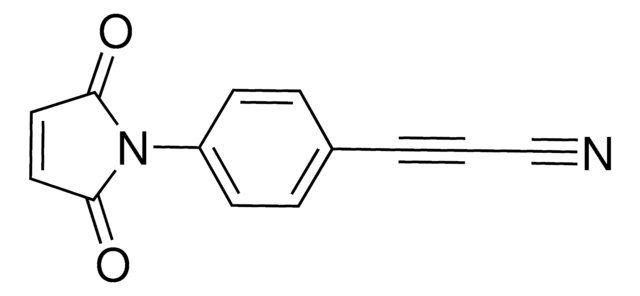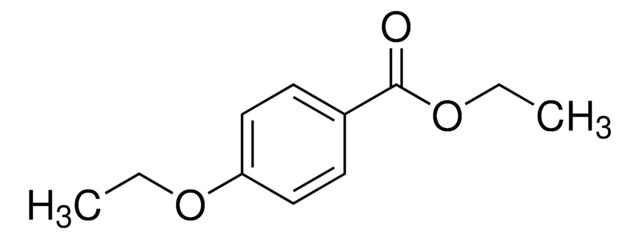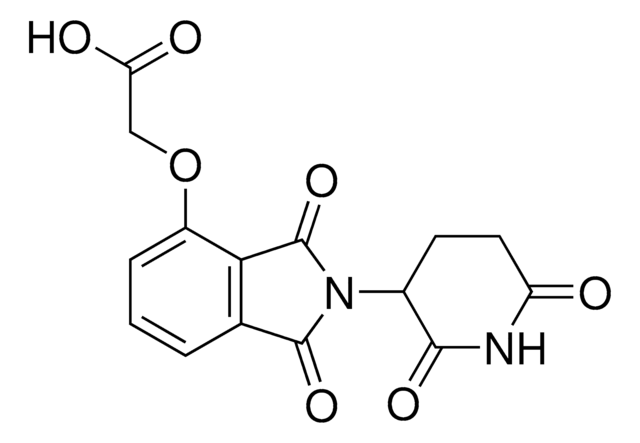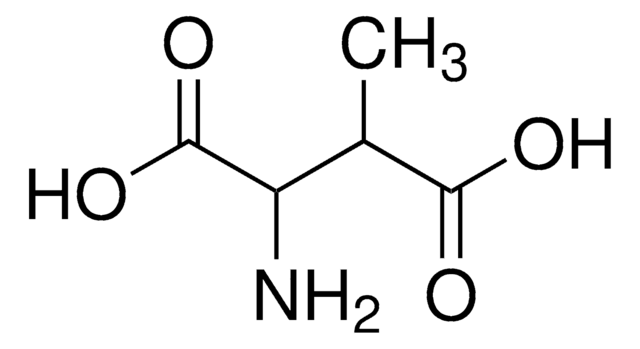807745
APN-COCI
Synonyme(s) :
4-(cyanoethynyl)benzoyl chloride
About This Item
Produits recommandés
Forme
powder
Niveau de qualité
Pertinence de la réaction
reagent type: cross-linking reagent
Température de stockage
2-8°C
Chaîne SMILES
N#CC#CC1=CC=C(C(Cl)=O)C=C1
InChI
1S/C10H4ClNO/c11-10(13)9-5-3-8(4-6-9)2-1-7-12/h3-6H
Clé InChI
OWNJCJKKKZXTIX-UHFFFAOYSA-N
Application
Autres remarques
- Dissolve the protein in the appropriate buffer with pH 6.5-9.0 (e.g. PBS) at 1-10 mg/mL concentration.
- Apply the appropriate amount of the stock solution of the APN-labeled molecule (1-5 molar eq. per free cysteine residue).
- Incubate at room temperature for 2 hours.
Mention d'avertissement
Danger
Mentions de danger
Conseils de prudence
Classification des risques
Acute Tox. 4 Oral - Eye Dam. 1 - Skin Corr. 1B
Code de la classe de stockage
8A - Combustible corrosive hazardous materials
Classe de danger pour l'eau (WGK)
WGK 3
Point d'éclair (°F)
Not applicable
Point d'éclair (°C)
Not applicable
Certificats d'analyse (COA)
Recherchez un Certificats d'analyse (COA) en saisissant le numéro de lot du produit. Les numéros de lot figurent sur l'étiquette du produit après les mots "Lot" ou "Batch".
Déjà en possession de ce produit ?
Retrouvez la documentation relative aux produits que vous avez récemment achetés dans la Bibliothèque de documents.
Notre équipe de scientifiques dispose d'une expérience dans tous les secteurs de la recherche, notamment en sciences de la vie, science des matériaux, synthèse chimique, chromatographie, analyse et dans de nombreux autres domaines..
Contacter notre Service technique










